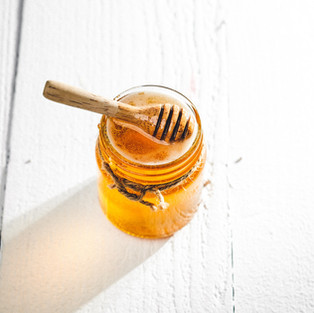How Nutrition Helps Hayfever
- Claire Clerkin
- Feb 22, 2021
- 3 min read
Updated: Feb 24, 2021
Hayfever or seasonal allergic rhinitis is a plague to many in the spring and summer months. It is caused by an immune reaction to allergens, usually pollen, and results in inflammation of the nasal mucous membranes.
In sensitive individuals, the allergen triggers the release of IgE antibodies which cause mast cells and basophils to release histamine. This leads to inflammation of the airways, sneezing, watery eyes, itching or runny nose and fatigue.
Research from the National Aerobiology Research Unit suggests a significant increase in the incidence of seasonal allergies over the last twenty years. And, based on projected temperatures and seed dispersal patterns, a recent European study estimated that seasonal allergies will double in the next 25–40 years.
While antihistamine medication can offer some relief, you can also look at optimising your immune health (to prevent the over-reaction to triggers) and consider foods that can reduce inflammation or have anti-histamine activity.

Which food compounds help the most?
Quercetin is a polyphenol, from the flavonoid family. Studies have suggested that quercetin inhibits histamine release by mast cells and basophils, suggesting an anti-allergy effect.
Bromelain, is an enzyme from pineapple and human studies have shown it to relieve hayfever by working as a natural anti-histamine, anti-inflammatory and decongestant.
Vitamin C is know to be important for proper immune function, but it also appears to prevent the secretion of histamine and promote its removal from the body (detoxification).
Omega-3 fatty acids have a positive effect on balancing inflammatory processes. However, for hayfever, you need to consider omega-3 supplementation at least 6 weeks before hayfever season for full effects.
Triterpine is a bioflavonoid found in mushrooms like reishi. It is thought to inhibit histamine release. See below for more information on medicinal mushrooms and hayfever.

Dietary Tips for Hayfever
I recommend that you start thinking about an ‘anti-hayfever’ diet before the season starts. This gives you the best changes of reducing your allergic responses when your pollen triggers abound.
Eat foods rich in quercetin: Apples, red onion, citrus fruits, broccoli, blueberries and tomatoes.
Reduce foods higher in pro-inflammatory compounds. Limit foods high in refined sugar, fried foods and highly processed foods.
Eat plenty of foods with anti-inflammatory compounds: berries, oily fish (mackerel, sardines, herring, anchovies), milled flax seeds, hemp seeds, turmeric and ginger.
Keep well hydrated – this helps to reduce histamine response. Take plenty of herbal teas with anti-inflammatory / anti-histamine herbs: turmeric, ginger, nettle, chamomile, holy basil (Tulsi).
Eat medicinal mushrooms. Shiitake and Reishi are some of the most well-researched mushrooms and their positive effect on the immune system has been validated by many studies. Their polysaccharides are shown to suppress the pro-inflammatory, Th2-mediated immune state responsible for the hypersensitivity to the particular allergen(s) while other compounds have direct anti-inflammatory and anti-histamine action. You can add fresh or dried shiitake to your meals and sprinkle reishi powder into soups, stews or smoothies.
Go foraging for nettles. Nettle is a natural antihistamine and can inhibit inflammation pathways triggered by exposure to an allergen. Research also suggests that nettles may block the receptor sites that histamine connects to, thereby reducing symptoms of excess histamine. Watch this video for tips on how to forage and eat wild nettles.
Local honey. While not many studies have been done to prove the efficacy of local honey on hayfever symptoms, many people swear by this intervention as a life saver! The thought behind this is that local honey contains low levels of local pollens that gently stimulate the immune system over time, so that you build up resistance to them (similar to the way a vaccine would work).
Digging Deeper - Gut Health
When it comes to immune health (and hayfever is an immune system over-reaction), then you must always consider gut health.
Intestinal permeability (aka 'leaky gut') is often associated with allergies. Most of our immune system resides in the gut, so it makes sense that an imbalance in gut health can lead to (or exacerbate) allergies and intolerances.
The good news is that most of the nutrition recommendations in this article will also help to foster a healthy gut. Many of the foods rich in quercetin are also rich in polyphenols and pre-biotic foods (feed the beneficial bacteria) and fibre, so they are a good place to start!
If you suspect that your gut health might be at the root of your hayfever, get in touch for a 1:1 consultation and bespoke gut-health plan.


















Comments